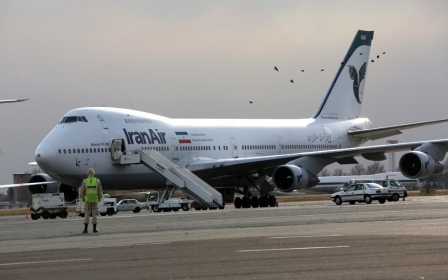Oil prices tumble as Saudis reportedly doubtful on output limits

Oil prices fell sharply late on Friday, wiping out much of the week's gains, after reports that Saudi Arabia is downplaying prospects of a producers’ deal on output next week.
The key benchmarks Brent crude and West Texas Intermediate both lost more than 3 percent in Friday's trading, as earlier hopes faded for the informal meeting of OPEC producers and Russia in Algiers.
The losses came after Bloomberg reported that an OPEC delegate "familiar with Saudi Arabian policy" said Riyadh did not expect any deal to limit output.
Earlier, the market had been encouraged by another unconfirmed report that the Saudis were talking with Iran about a mutual deal to freeze production.
For the day, US benchmark West Texas Intermediate for delivery in November lost $1.84 cents to $44.48 a barrel in New York trade.
In London, Brent North Sea crude for November delivery shed $1.76 to $45.89 a barrel.
"I think the biggest factor is here that the market does not believe at this point that there could be some sort of agreement surrounding the production freeze by OPEC producers," said Bart Melek at TD Securities.
Russia and members of the OPEC oil cartel led by Saudi Arabia will attend the International Energy Forum in Algiers beginning Monday, with informal talks on countering the market glut planned for the sidelines of the three-day event.
Traders are uncertain that a deal can be reached on maintaining, much less cutting, current output levels.
Reports that Saudi Arabia, Iran and Qatar met at the OPEC headquarters in Vienna had fueled optimism.
An earlier Saudi-led attempt to freeze output fell apart in April after Iran refused to participate, saying it needed to raise production depleted by years of Western economic sanctions, which were lifted only in January.
"A deal to freeze production should give oil prices a significant boost, while if there is no deal, then expect to see a big drop, at least in the short-term," said Fawad Razaqzada, market analyst at Forex.com.
For the week, Brent prices were slightly higher, up 0.3 percent from September 16, while WTI rose 3.4 percent.
Support came from data showing US commercial inventories fell more than six million barrels last week, suggesting stronger demand in the world’s top oil-consuming country.
Libya and Nigeria continued to struggle to raise production.
Libya's effort to sharply boost exports was placed in doubt after fighters loyal to the UN-backed unity government were repelled in their attempt to retake control of eastern oil ports from rival forces.
In Nigeria, a militant group on Monday claimed an attack on a crude oil pipeline in southern Delta state, the second on the same line in less than a week.
New MEE newsletter: Jerusalem Dispatch
Sign up to get the latest insights and analysis on Israel-Palestine, alongside Turkey Unpacked and other MEE newsletters
Middle East Eye delivers independent and unrivalled coverage and analysis of the Middle East, North Africa and beyond. To learn more about republishing this content and the associated fees, please fill out this form. More about MEE can be found here.




